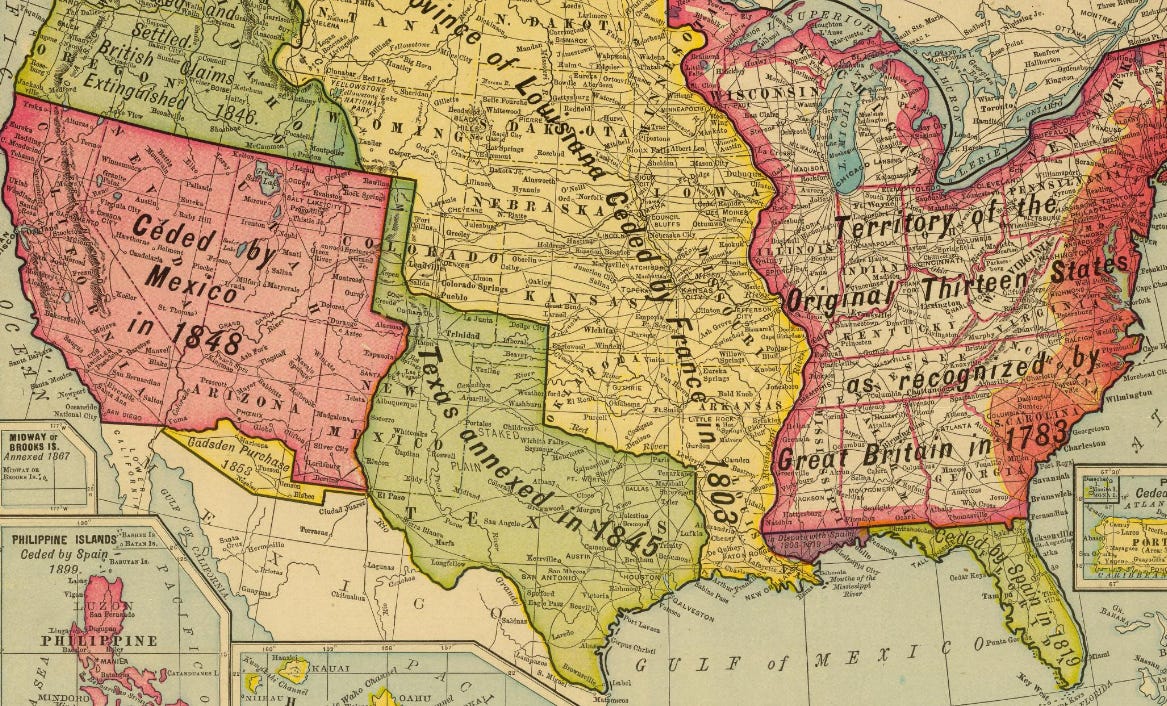Week signals: The empire strikes forward
Plus: watch points for Germany, France, Saudi Arabia, Turkey, and South Africa.

This week:
IN REVIEW. A deal with the devil, spheres of influence, physical vs institutional hegemony, and the twilight of the globalists.
UP AHEAD. Germany reacts, Bayrou stumbles, MBS gets busy, a breakthrough with the PKK, and a meeting in Johannesburg.
Week Signals is the Saturday note for clients of Geopolitical Strategy, also available to GD Professional subscribers on Geopolitical Dispatch. Click here to learn more.
The Week in Review: Size matters
The week began with Donald Trump’s threat of 25% tariffs on aluminium and steel. It ended with the threat of “reciprocal” tariffs on everything at potentially any rate. In between, talks were announced with Russia (then thrown into some doubt after JD Vance’s interview with the Wall Street Journal), the glimmers of a Gaza alternative materialised, Elon Musk made a bid for OpenAI, Romania’s president resigned, and Austrian coalition talks collapsed. Elsewhere, Sudan’s army gained on Khartoum (and recommitted to a Russian base), Syria’s new government continued its charm offensive, a drone hit the Chernobyl containment site, and Narendra Modi visited Washington.
For the many still reeling from the changes in US domestic policy, much of the above would not have made it through the aperture. The zone is flooded, and the media is drowning. But now, more than ever before, foreign policy matters. And a major new theme is emerging, which bears watching for all businesses, not just in the US but everywhere.
That new theme is an old one – the idea of spheres of influence – and it received not only a boost this week from Trump’s call with Vladimir Putin, or Vance’s attack on Europe’s liberal policy elite – a remaining bastion of the old rules-based order – but the ongoing pressure coming to bear on America’s near abroad.
Having enjoyed a period of benign neglect under Joe Biden, the region continues to face the full force of America First policies. Panama, chastened by threats of taking back the canal, has accepted the deportation of 119 migrants, mostly from third countries. Pierre Poilievre, likely to win this year’s elections, has declared he will fund a new base in the Arctic using Ottawa’s aid budget. Trump continues to call for Canada and Greenland’s annexation. Associated Press has been denied a spot in the White House Briefing Room due to its refusal to shift from the Gulf of Mexico.
Gaza aside, Trump is moving fast towards a revival of the Monroe Doctrine. Whether or not he increases America’s size by adding new territory, he has made clear his primacy in the Western Hemisphere, as well as his disinterest in the norms of the post-1945 order.
The flip side of this, and per his recent outreach to Russia and China, is that he’s signalling an acknowledgment that other powers have a similar right to the US in their own spheres of influence. For Russia, that means Ukraine. For China, presumably, it means Taiwan.
India, which is trying to maintain good ties with the US despite irritations on trade and migration, will also welcome this aspect of US policy, as it means to Delhi an acceptance of the Raj-era policies it never relinquished: that it should dominate South Asia as its own backyard. Similarly, Canberra will welcome such an acceptance for the Southwest Pacific; Ankara for its former Ottoman territories; Paris for what’s left of its shrinking Francophonie.
Trump’s neo-imperial ambitions can be seen less as a quest for taking back unipolarity than an acceptance of multipolarity – a desire to dominate one’s neighbourhood as long as rivals keep to theirs. And like his policies on trade, it can also be seen as an acknowledgement that US economic primacy is over, and the strength of American enterprise alone is unlikely to be sufficient for industrial dominance.
And this desire is not always a bad thing. Multipolarity kept the 19th century largely stable, as clubby spheres of influence were maintained until Germany decided it wanted one for itself. But to the many smaller countries that have prospered – alongside America – in the 20th and 21st centuries, it’s a rebuke to not only their sovereignty but a warning that the systems to have governed globalisation, and the relatively free movement of goods, people and ideas, is gravely under threat.
Whether it’s a splintered internet, a return to currency zones, the reemergence of Cold War-style blocs, or an actual neo-imperial era – with imperial trading preferences and imperial wars – such a world may look more geopolitically stable than today’s interregnum, but it will be less economically prosperous, less culturally vibrant, less ethically fair, and less legally predictable, particularly if you stray beyond your business’s home market imperium.
So then how likely is this brave new/old world?


